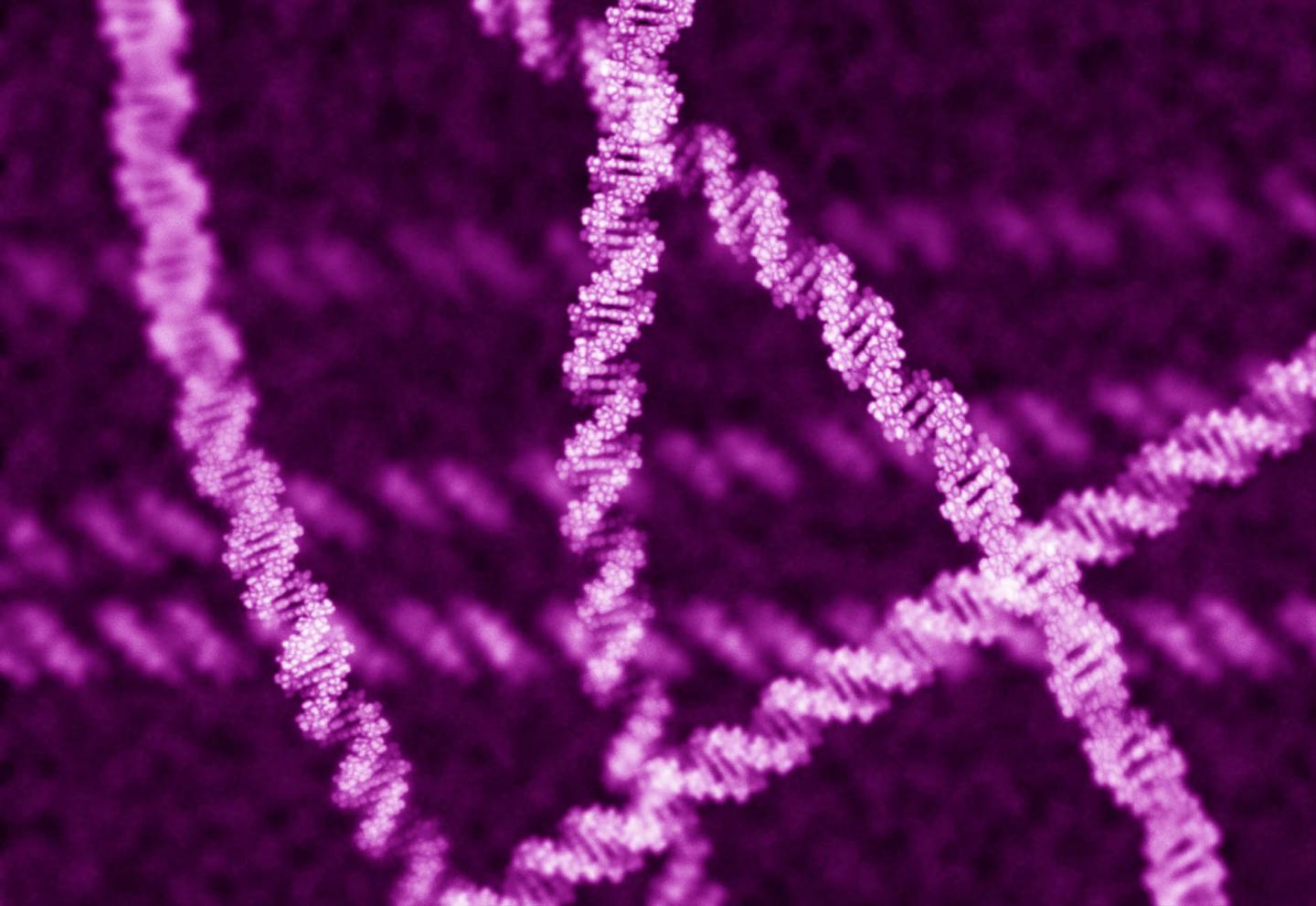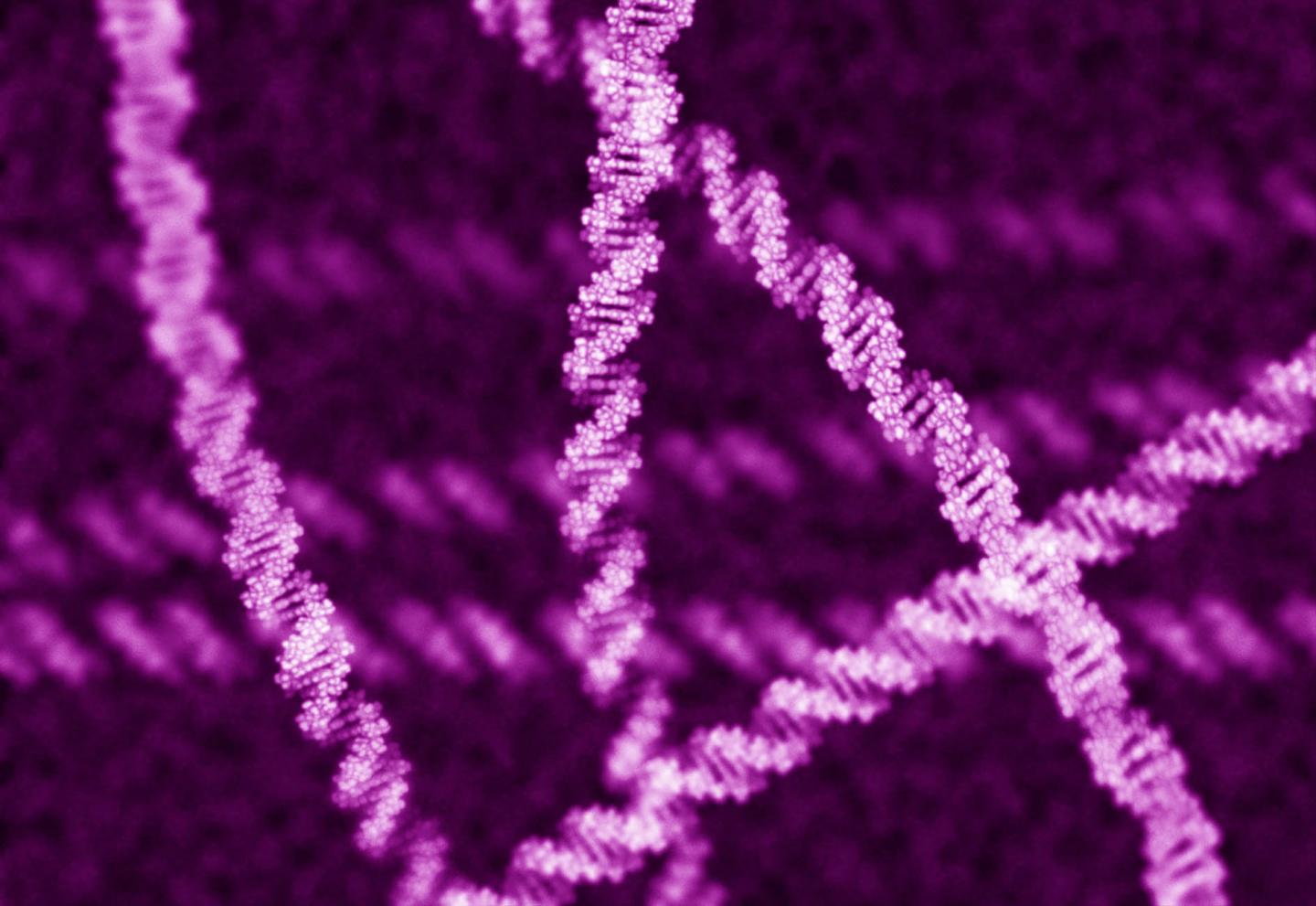
Credit: WEHI-TV Walter and Eliza Hall Institute, Australia
Walter and Eliza Hall Institute researchers have uncovered a key factor protecting against age-related DNA damage, providing important clues about how our body guards against cancer.
The discovery was made by identifying a rare genetic mutation in three patients with an unusual, early-onset form of acute myeloid leukaemia (AML). The patients all lacked a DNA repair protein called MBD4, which led to them accumulating DNA damage at a higher rate than normal – as though they were ageing prematurely.
The research, led by Dr Edward Chew and Dr Ian Majewski in collaboration with Dr Mathijs Sanders and Dr Peter Valk at Erasmus University Medical Center, Netherlands, highlights the importance of DNA damage in driving cancer development. The study was published in the journal Blood today.
—At a glance
- As we age, our DNA accumulates damage, which can increase our risk of developing cancer
- Our researchers identified accelerated DNA damage in rare cases of acute myeloid leukaemia, and linked this to loss of a DNA repair protein called MBD4
- This is the first time MBD4 has been implicated in blood cancer development, and provides important clues about why cancer becomes more common as we age
—DNA damage drives cancer
All cancers are caused by changes to a cell's genome, and many cancers become more common with age, said Dr Chew, who is a clinician PhD student and a haematologist at The Royal Melbourne Hospital, a partner of the Victorian Comprehensive Cancer Centre.
"In this study, we identified AML samples from three patients that showed unusually high rates of 'methylation damage' to the DNA," Dr Chew said. "DNA methylation has a role in fine tuning gene activity – but it also makes DNA more susceptible to damage.
"DNA damage occurs constantly and our cells have ways to correct this damage. This is how we safeguard our genome from accumulating damage that puts our cells at risk of cancerous changes.
"When we sequenced the patients' genomes, we discovered they all carried changes in the same gene, called MBD4. This gene encodes a protein that repairs methylation damage. The loss of MBD4 in these patients explained why their cells had not repaired the damage," he said.
AML is typically a disease of older adults, with the majority of patients aged more than 70.
"The three patients who lacked MBD4 were predisposed to accumulating high rates of methylation damage – which we believe led to them developing AML as young adults (around 30 years old)," said Dr Chew
—New insights into DNA repair
Methylation damage accumulates as part of normal ageing, but this study highlighted a particularly strong link with blood cancers, Dr Majewski said.
"We were looking at extreme cases where young individuals had accumulated abnormally high levels of methylation damage, driving the development of AML unusually early in life – it was as though their cells were ageing prematurely," he said.
"Our research pinpoints methylation damage more generally – even at lower levels – being an important contributor to the development of cancers. An important next step is to understand precisely why blood cells are at risk from this form of DNA damage."
The research discovery relied on recent advances in the fields of genomics and computational biology.
"One of the three AML samples we studied was collected in the 1990s," said Dr Majewski. "At that time, DNA sequencing was still cumbersome and expensive, and we still hadn't completed the first human genome sequence. We were lucky that our colleagues in the Netherlands had the foresight to store this sample for future analysis.
"It's exciting that we've now been able to use modern technologies to unravel this mystery, and in the process we've gained important new insights into how the ageing process shapes the development of cancers," Dr Majewski said.
###
The research was supported by generous donations from the Alfred Felton Bequest, Mr Malcolm Broomhead, and BHP Billiton, as well as grants from the Australian National Health and Medical Research Council, the Leukaemia Foundation of Australia, the Sultanate of Oman, the Bellberry-Viertel Fellowship, the Netherlands Organisation for Scientific Research, Center for Translational Molecular Medicine (Netherlands), the Victorian Cancer Agency, and the Victorian Government.
Media Contact
Arunee Wilson
[email protected]
61-475-751-811
@WEHI_research
Original Source
https://www.wehi.edu.au/news/new-clues-about-how-our-body-guards-against-cancer http://dx.doi.org/10.1182/blood-2018-05-852566





